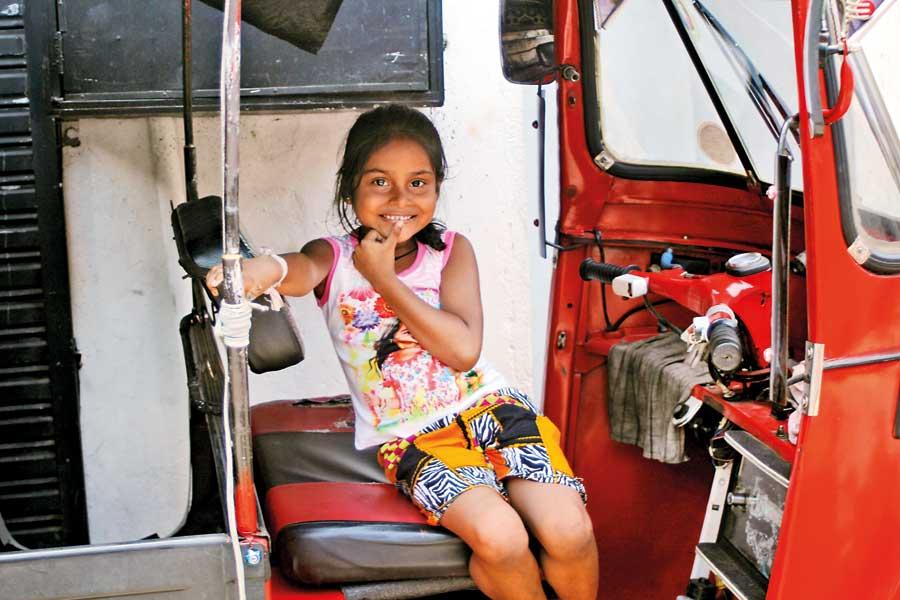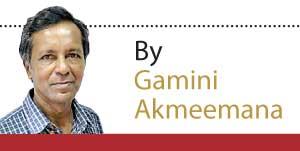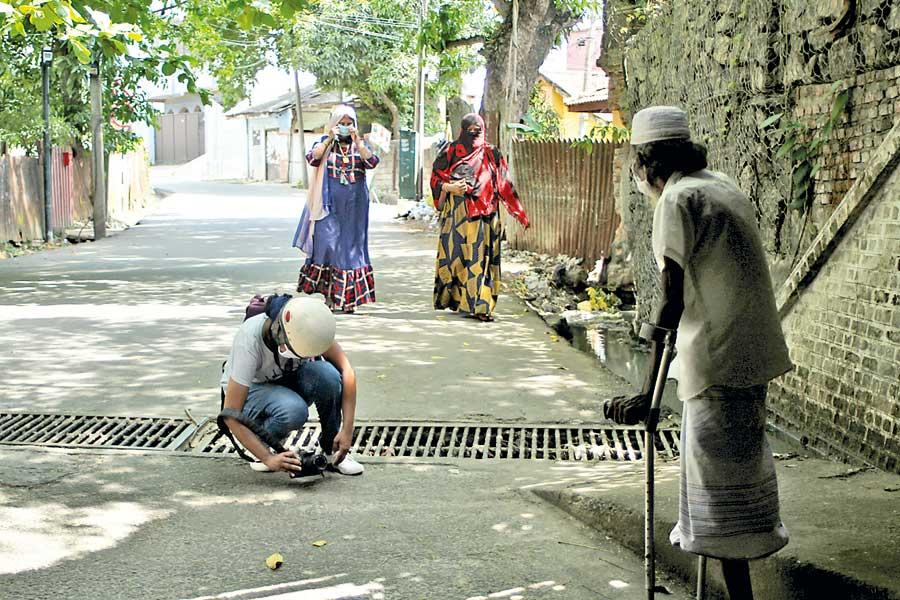Reply To:
Name - Reply Comment

Three wheeler drivers are idling and have families to feed
When I started writing this Coronavirus Diary, I had no idea how it was going to develop. We think one thing leads to the other. But Coronavirus is different. It always gets back to itself.
It’s not just one thing. It’s everything.
 You turn on the radio, and more likely than not, you will hear the dreaded word being spoken. Don’t do this, don’t do that. Above all, stay home. Be safe. Be responsible. I know, and I’ve been trying my best. I fear the dreaded virus as much as anyone else.
You turn on the radio, and more likely than not, you will hear the dreaded word being spoken. Don’t do this, don’t do that. Above all, stay home. Be safe. Be responsible. I know, and I’ve been trying my best. I fear the dreaded virus as much as anyone else.
But I am a journalist, I have a media identity card, and that enables me to be mobile during the curfew. I have a responsibility to the public I serve, to show them what life in Colombo under the curfew, strictly on the force since Friday, March 22, is like.
After the brief excitement of that Friday morning, when the curfew was lifted till two p.m, I made brief forays into city streets on my scooter, photographing life.
The city is not deserted, there is simply less traffic and fewer people on the streets. No public transport and shops shuttered up, but you find roadside stalls and vehicles parked here and there, selling fish, meat, vegetables, eggs
|
Suraj Madhushanka |
and milk. After the initial forays, facing opposition from home, I decided to stay home and be safe. It’s a Hobson’s Choice. You feel bad about playing it safe, but you also feel that social responsibility in this case also means reporting on what’s going on.
While in this confused state of mind, I got a call from a friend asking if I could accompany a female journalist from a Sinhala newspaper to Wanathamulla, the favelas of Colombo.
In a way, I dreaded Wanathamulla as much as the epidemic. After former Minister Champika Ranawaka, when he was a big shot in the previous regime decided to turn my quiet little lane into a pawn in his urban gentrification nightmares, cutting down all trees and creating a beastly hot ecological disaster, the denizens of Wanathamulla have direct access to us, and vice versa.
According to the saying, the devil isn’t as bad as he seems to be, and most Wanate residents, who trudge up and down the street now are like most of us, too busy simply trying to survive.
The notorious underworld leaders are resting six feet under, oblivious to Coronavirus, due to internecine gang warfare aided and abetted by extrajudicial killings by guess who.
Nonetheless, old prejudices and fears lurk in the mind, and I had never ventured into Wanatamulla on my own.
Just a few days ago, a Policeman asked me to get him betel victual from that area. When I went there, it was crowded, social distancing was a joke, few bothered to cover their faces, and the young man who procured me the victual also offered me arrack and KG (Kerala ganja). But a sense of self-respect made me say yes to my friend’s request. What would this journalist think of me if I refused? What would I think of myself?
Laying aside fears of rotting lungs, I accompanied her to the humid beehive of Wanathamulla. I know a Municipality worker who lives there and asked him to act as a go-between. I’ve been in slums before, always carrying a camera, and know-how tense things can get.
|
K. Sudharmalan |
When you walk carrying cameras into any place with rampant unemployment, overcrowding, drugs and crime, with most people simply focusing on how to survive the day, you make a very bad impression on the locals. When you have half your face covered (with a mask and handkerchief, respectively) it’s even worse.
Soon, tough guys with beards, tattoos and hard stares were crowding us, asking, ‘who, what, why?’ This is where Nihal, our go-between, proved invaluable. The female journalist was absolutely cool under fire, and that seemed to have a cooling effect on the opposition. While many didn’t want their photos were taken (Undoubtedly with good reason), they became quite talkative.
Soon, we were in the locality known as 130 Watte in Sinha Dupatha. The origin of this name is worth finding out, as no history of Colombo mentions lakes or rivers in this area, hence there could not have been an island, even an islet, here.
The stories focused on one thing – where’s the promised relief aid? There are two sources of official handouts – the Colombo Municipal Council’s relief package of Rs. 2,800 worth of foodstuffs to each family in the slums of Colombo, already issued, and the government’s proposed relief plan, again Rs. 5000 for each Lankan family.
We encountered a mass of confusion about this, claims and counterclaims. As for the CMC’s package, some acknowledged receiving it, some said they did not, while others said some families got more than one. As for the government’s relief aid, the usual political muddle seems to have taken charge.
The Grama Sevaka and Samurdhi officers have been put in charge of this mechanism. But those who spoke to us said that political interfering by Municipal councillors is messing up the process. A municipal councillor I spoke to admitted that some instances of such interference had been reported, adding that in some cases the Samurdhi officers too, have committed mistakes in making the recipient lists. In the final count, the total relief aid – Rs. 7,800 combined, is hardly enough to sustain a family of four for long. It works on the principle that something is better than nothing.
The reality is that the people of Wanathamulla – including Magazine Road, and 130 Watte of Sinha Dupatha, which contains 1,500 families – must fend for themselves in the long run. The Coronavirus epidemic has simply highlighted their age-old plight, insecurity and uncertainties. Many are self-employed, selling lottery tickets, or children’s books, at traffic lights, walking the streets all day. Others drive three-wheelers. All are idling.
Below them, there are another strata of beggars and sex workers. Though not officially recognized, they have a strong street presence. Whether they are entitled to official aid, no one could confirm, and none was there to be seen as we walked along the maze of back alleys under the broiling sun.
An old lottery ticket-seller broke down and wept while talking to my media companion. Suraj Madhushanka, who lost a leg in a road collision in 2004, took us home to meet his family. His sister is the only wage earner, and her future is uncertain as to the shop which employs her remains closed up. K. Sudharmalan, was cleaning a gas cooker by the roadside. He makes a living by that and other odd jobs, but these days work is hard to come by as people have no money.
Pujitha Liyanage, a cheerful, voluble three-wheeler driver, is out of work now. But he takes it philosophically.
As the finance company has put on hold the lease payments on his three-wheeler, he’s using the money he has to feed the family. It won’t last forever. But, as he puts it: “This is an international crisis. We have to understand. I just hope the government can give us some support to continue our day to day living.

At Maligawatte